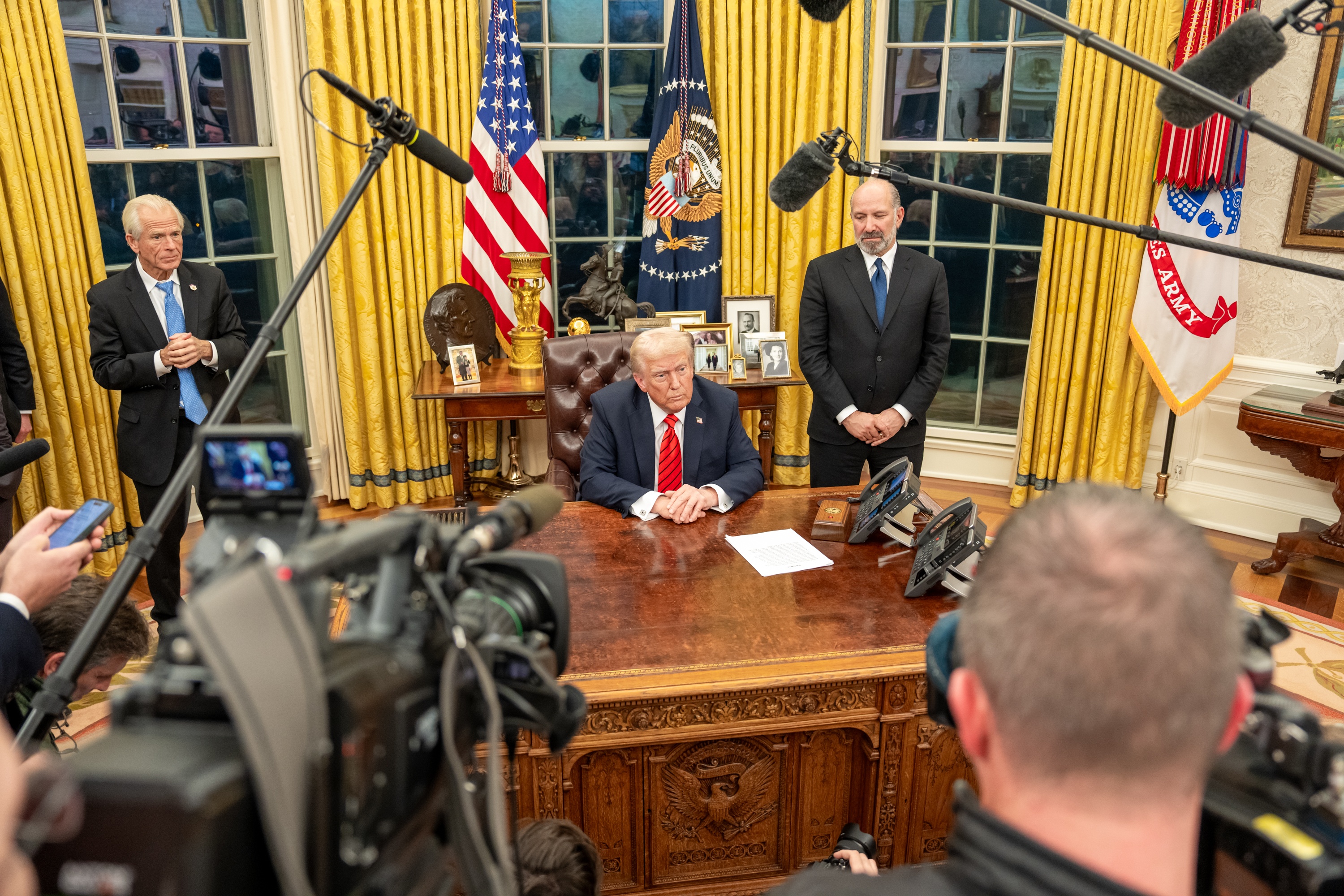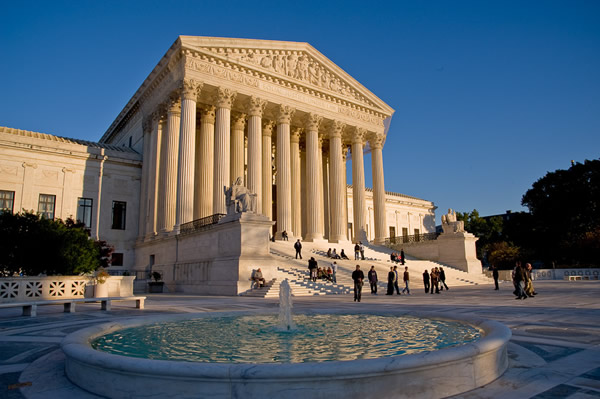Michael Flynn May Want to Call the ACLU
The election of Donald Trump as president prompted a lively debate about whether the resulting alarm about civil liberties was justified. At the CATO surveillance conference in December, I made the case that it was, and that Trump’s control of the NSA and other surveillance agencies might result in widespread surveillance abuses.
Published by The Lawfare Institute
in Cooperation With

The election of Donald Trump as president prompted a lively debate about whether the resulting alarm about civil liberties was justified. At the CATO surveillance conference in December, I made the case that it was, and that Trump’s control of the NSA and other surveillance agencies might result in widespread surveillance abuses. The discussion prompted me to write a new chapter for my upcoming book, Beyond Snowden: Privacy, Mass Surveillance, and the Struggle to Reform the NSA.
At the time, I argued that the troubling philosophy of incoming national security adviser retired Lt. Gen. Michael Flynn could well result in major abuses. I worried about surveillance policy directed by a man who once tweeted that “fear of Muslims is RATIONAL,” and who both disdained basic facts and embraced conspiracy theories. (While Flynn’s departure will require a few edits, my conclusion remains the same—on civil liberties, fear of Trump is rational.)
|
If you are finding Lawfare useful in these times, please consider making a contribution to support what we do. |
It is ironic, therefore, that Flynn himself may be the first victim of civil liberties abuse during the Trump administration. Flynn resigned yesterday in response to fallout from revelations of the contents of his conversations with the Russian ambassador—conversations that were reportedly monitored by U.S. intelligence. The surveillance that ensnared Flynn was almost certainly targeted at the Russian ambassador and therefore was lawful; the leaks regarding the substance of those conversations, however, were a civil liberties abuse.
As such, General Flynn might want to call the American Civil Liberties Union.
According to news reports, Flynn spoke with the Russian ambassador after the Obama administration took punitive actions in retaliation for Russia’s interference in the 2016 election. Flynn apparently made representations to the ambassador regarding the (presumably softer) line towards Russia that may have contributed to Russia’s decision not to respond. Reportedly, these conversations were monitored by U.S. intelligence and alarmed national security officials.
Flynn certainly breached protocol. He may also have broken the law by interfering with U.S. diplomatic efforts while still a private citizen, which is forbidden by the Logan Act. The centuries-old law is vague, however, and has never resulted in a conviction. Furthermore, there may be significant First Amendment problems with enforcing it. Officials became more alarmed when Flynn was not forthcoming with then Vice President-elect Pence and others, possibly including federal agents, about the conversations. Those officials feared that Flynn’s dissembling might open up him up to risks of blackmail.
There are still more questions than answers. Did then President-elect Trump authorize Flynn’s calls? When did Trump learn of the content of the conversations? Did Trump intentionally dismiss warnings about Flynn?
We do know, however, that these conversations were leaked to the press by multiple high-level national security officials. President Trump has tweeted his outrage at this leaking; this is curious, as it was his decision to accept Flynn’s resignation, and he could have kept Flynn on if he thought the leak campaign against him unfair. Still, while it pains me to admit it, Trump has a point. Such leaking is reckless. There will be serious damage to national security if this particular source of intelligence dries up as a result. While foreign ambassadors in Washington surely know they may be targets of U.S. eavesdropping, they may know if the intelligence agencies have succeeded in their efforts—and that is how it should be.
Furthermore, these leaks are criminal. As Edward Snowden has learned, the Espionage Act makes intentional disclosure of classified “communications intelligence activities” a felony if such disclosure is made in a “manner prejudicial to the safety or interest of the United States or for the benefit of any foreign government . . . .” 18 U.S.C. § 798(a). This particular group of leakers might argue their motives were in defense of U.S. interests—to protect the nation from national security policy guided by a hand tainted by Russian influence—but under current law, that argument is highly unlikely to prevail. As Snowden well knows, there is no public interest defense to prosecution for violations of the Espionage Act.
If officials had concerns about Flynn, the law requires they lodge those complaints through the system and not through leaks. (On this point, Glenn Greenwald is right to note the hypocrisy of this “tawdry, craven game of Washington”—Greenwald, at least, is consistent in his steadfast support of unauthorized disclosures.) And if, notwithstanding their criticisms, President Trump decided not to take action against Flynn, those officials were supposed to maintain secrecy regarding the subject matter even if they disagreed with the decision.
Finally, and possibly most importantly, leaks of Flynn’s conversations are about more than playing politics with classified information. It seems rather likely that these conversations were obtained pursuant to an order of the Foreign Intelligence Surveillance Court (as would be required for the monitoring of any person inside the United States, including foreign ambassadors). Publicly disclosing or disseminating such information for purposes other than foreign intelligence almost certainly violated that order, and possibly Flynn’s constitutional rights.
FISA orders and minimization procedures, approved by the FISC, are intended to protect the Fourth Amendment rights of U.S. persons—like Flynn—who are in contact with valid intelligence targets. Minimization procedures are designed to protect incidentally collected information to, from or about U.S. persons. The Office of the Director of National Intelligence has released the NSA’s standard minimization procedures under Title I of FISA.
The sharing of Michael Flynn’s name or title is almost certainly permissible under existing minimization rules. Indeed, sharing his name was a crucial element to understanding the foreign intelligence value. Separate from violations of classified information handling rules, the minimization rules permit dissemination only to “a recipient requiring the identity of such person for the performance of official duties”—a category that surely does not include the press.
Whether we approve of the motive or not, it is an abuse of surveillance for national security officials to leverage legitimate foreign intelligence collection to reveal public information in order to damage individuals they do not believe should serve. In fact, these kind of abuses (among others) led to the passage of FISA in the first place. Richard Nixon’s National Security Advisor, Henry Kissinger, requested wiretaps on White House staff to uncover news leaks involving classified information. The “White House wiretaps,” as they were known, were reviewed by Senator Frank Church’s investigative committee. There have long been suspicions that Kissinger, who received the FBI transcripts, requested the wiretaps not for security purposes—which were not his purview—but instead to keep tabs on rivals and to gain an advantage in policy disputes.
That is not to suggest this monitoring is akin to what occurred under Nixon—it seems relatively apparent Flynn was not actually the target at all. Still, it is important to note the history of abuses that led FISA to set strict legal standards not only for how electronic surveillance is collected, but also for how it is used. There is simply no way to justify the leaks to the press as within the allowable purposes of the Act.
If Flynn calls, the ACLU should take his case. FISA permits civil lawsuits. Now that Trump has told Flynn, “You’re fired,” Flynn may want to tell the Trump administration: “See you in court.”





